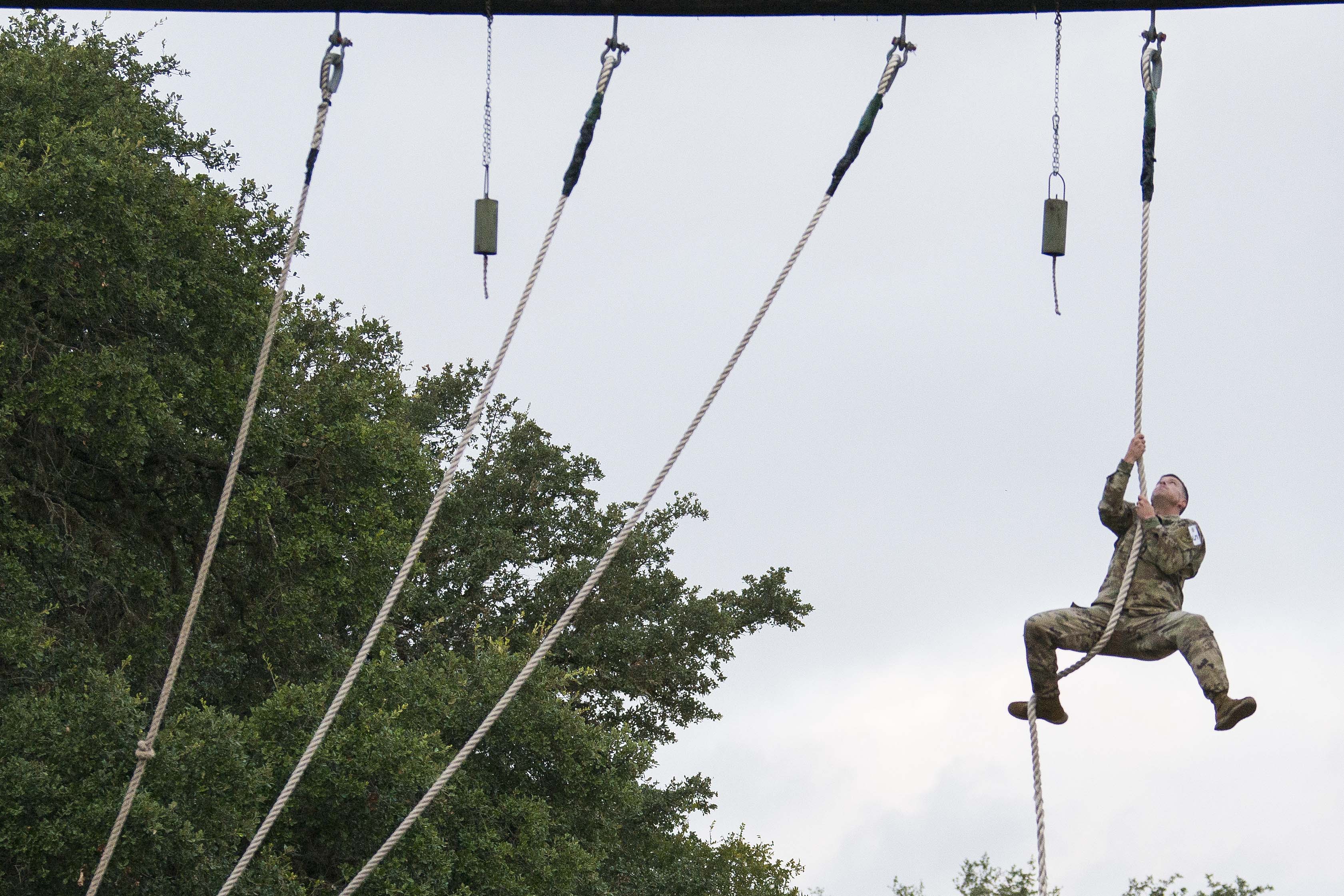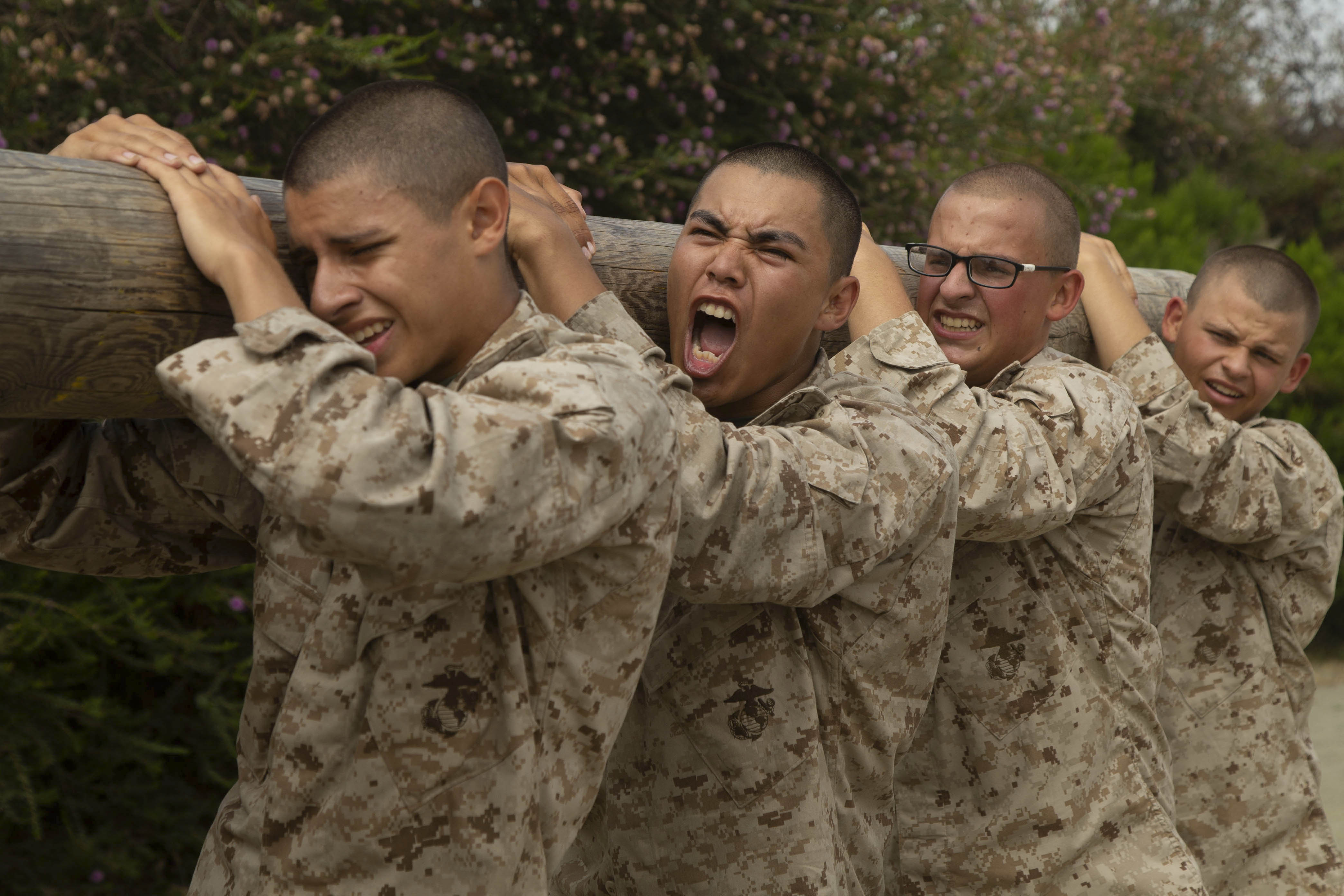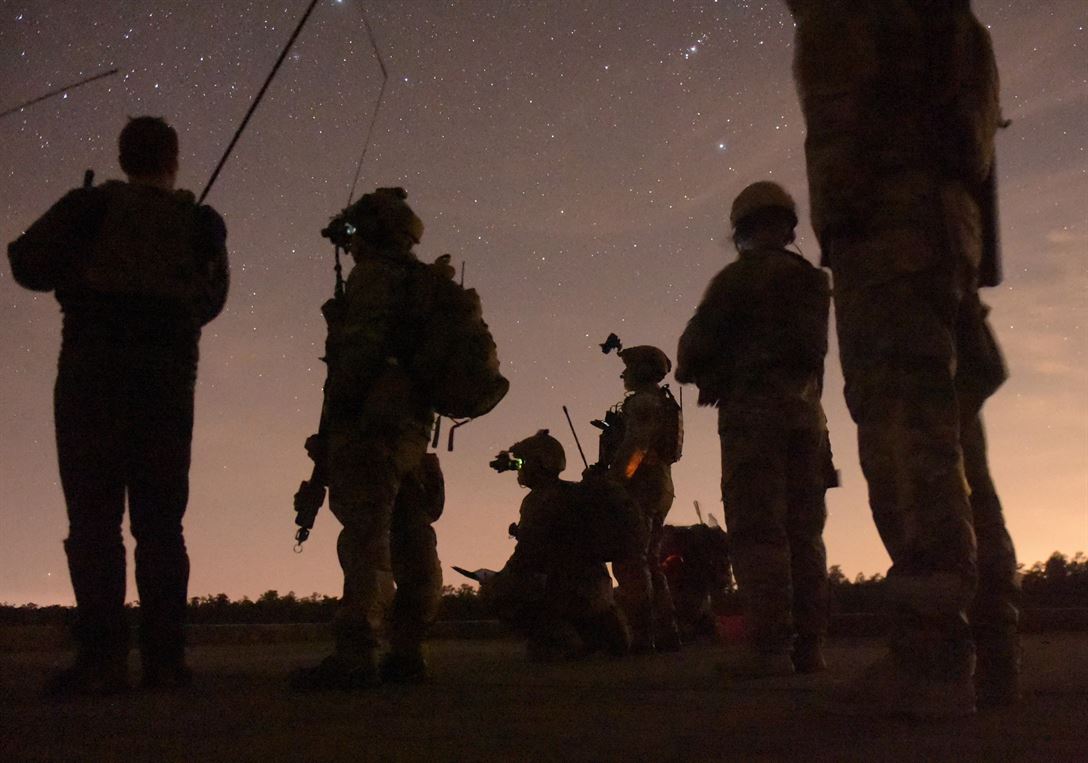
Air Force Special Tactics airmen conduct close air support training during Emerald Warrior 17, March 2, 2017. Air Force photo by Tech. Sgt. Barry Loo
Many of the veterans I work with can get frustrated during their post-military lives. They were once kings and queens, warriors and poets, master and mistress of all they surveyed. Okay, so maybe they weren’t in charge of all that, but they had a heck of a lot of responsibility for some really important stuff at a young age.
Moving from a familiar environment to an unfamiliar environment is always challenging. Consider the move to a new duty station, a different unit, even moving from one sector to another during deployment: you can get all the intel you want, do all the research you need, but still you don’t know until you have boots on ground. We were able to make ourselves indestructible then, why is it challenging after we leave the service?
I’m guilty of feeling this frustration as well. I have a message that I want to spread…veteran mental health and wellness is critical to a successful transition…and sometimes it’s hard to get above the noise. Hundreds of people are talking about veteran mental health, veteran suicide, PTSD, veteran mental health and wellness…but where are the voices of those who are perhaps most qualified to speak on the topic, the mental health professional? I know I’m not alone in this. I’ve had this conversation with Justin Nassiri, host of the Beyond The Uniform Podcast. He referred to it as feeling like he’s yelling in an open room; I often talk about shouting into the fog.
So what keeps me going? Why continue in spite of the frustration and frequent lack of response? Because I don’t have quit in me, and you probably don’t have it in you. I want to be the John McLane my chosen space: the fly in the ointment, as he said in Die Hard. The monkey in the wrench, the pain in the ass, if that’s what’s needed. I want to be as indestructible as a cockroach, as long lasting as a freakin’ twinkie. Okay, maybe not a twinkie, but you get my meaning. When the frustration, and even doubt, starts to creep in, I rely on the lessons I learned during my military service.
Tap Into Your Warrior Ethos
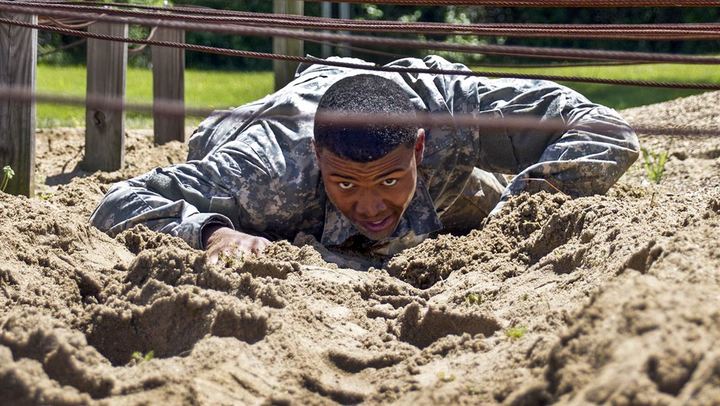
Army Sgt. Marc Doss low-crawls, April 24, 2017. Army National Guard photo by Staff Sgt. Scott Raymond
Every branch of service has it’s creeds and mottos. The unwavering resolve that we had while we were in the military can be applied to your post-military life as well. As an Army veteran, I am most familiar with the Warrior Ethos: I will always place the mission first. I will never accept defeat. I will never quit. I will never leave a fallen comrade. That mission, for you, is whatever you choose it to be. For me, it’s bringing awareness to veteran mental health; for you it may be getting a job. Or overcoming addiction. Or being best whatever it is you’re doing that you can possibly be. That never quit, maximum effort attitude that you possessed when you were in the military didn’t go away…it’s still there. You just have to pull it out of the back of the closet, where it’s sitting next to your old PT uniform, and put it to work.
Recognize the Strength You Possess
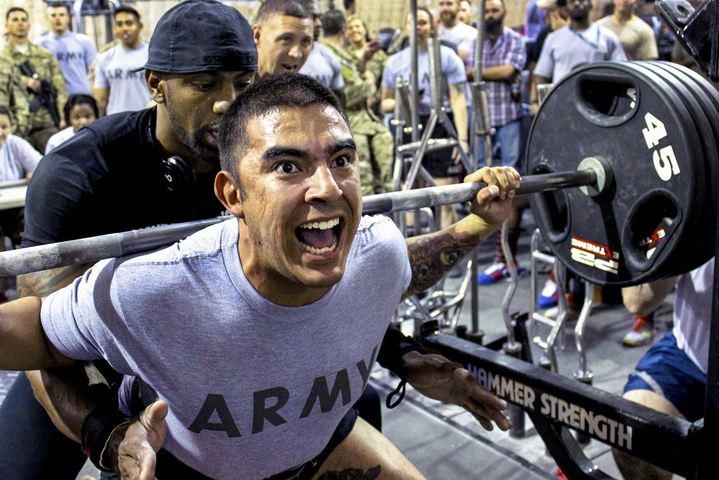
A U.S. soldier participates in the squat event during the weightlifting competition, July 18, 2015. DoD photo
Whatever you did in the military, chances are you were successful. Marksmanship, physical fitness, proficient in your tasks and drills. You got stuff done while you were in the service. Maybe, like me, you found yourself in an occupational specialty that you weren’t really all that thrilled about; so perhaps, also like me, you found ways to stretch beyond your capabilities by pursuing challenging assignments. Jumping out of airplanes or helicopters. I get it, not all veterans are Rambo and GI Jane, but chances are you had success while you were in the service. YOU know it; all you have to do is remember it, and believe that you’re going to be just as successful outside the service as you were in it. It took hard work for you to succeed when you were in, why would it be different now that you’re out? Remembering past success, and how you got there, can lead to future success.
Recognize Your Own Value
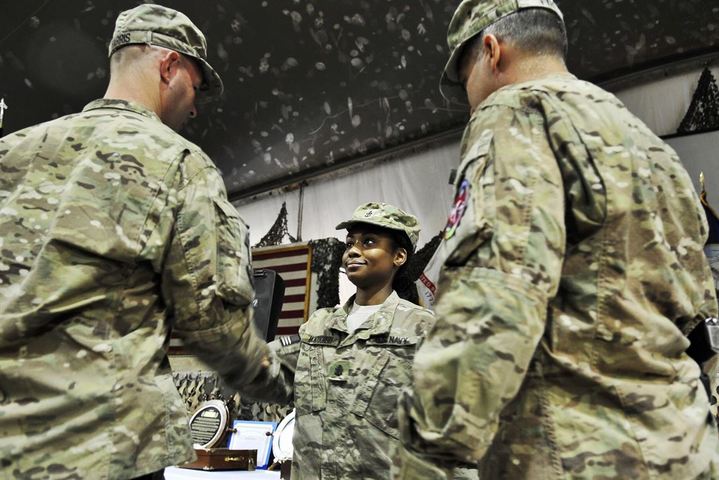
U.S. Navy Chief Petty Officer Jainea Montgomery is congratulated during a chief pinning ceremony on Bagram Airfield, Afghanistan, Sept. 16, 2015. U.S. Navy photo by Lt. Kristine Volk
One thing I see often with transitioning service members is that we take the first job that will accept us. I know I did; I enjoyed it, it kept me working with veterans, but it really wasn’t what I wanted to do. Recognize the value that you have, both as an individual and because of the skills you gained while you were in the service. You are worth more than you think you are; you may know the value of the problem solving, determination, never-quit attitude and skills that you have, but maybe your prospective employer doesn’t. If they don’t see it: their loss. If they see it, and offer you a position, but it may be less than what you think you can handle, then take it. If working in the mail room (if that’s even a thing anymore) pays the bills, then go for it…and your value will quickly be identified, and you won’t be in the mail room for long. Just as you were given more responsibility when you demonstrated competence when you were in, the same thing will happen when you’re out.
Bottom line: don’t let the obstacles in your way become a dead end. They’re not insurmountable, they’re just in the way. Overcome the insurmountable by being indestructible…then turn around and help your brother or sister in arms.

The Head Space and Timing Blog is supported by the Colorado Veterans Health and Wellness Agency, a 501(c)3 Nonprofit in Colorado Springs, Colorado. The goal of the CVHWA is to provide military culturally competent mental health counseling to veterans and their spouses, regardless of characterization of discharge, time of service, or era of service. Our vision is to assist veterans to identify and remove barriers to their mental, physical, emotional, and behavioral wellness. For questions or inquiries, contact us!

